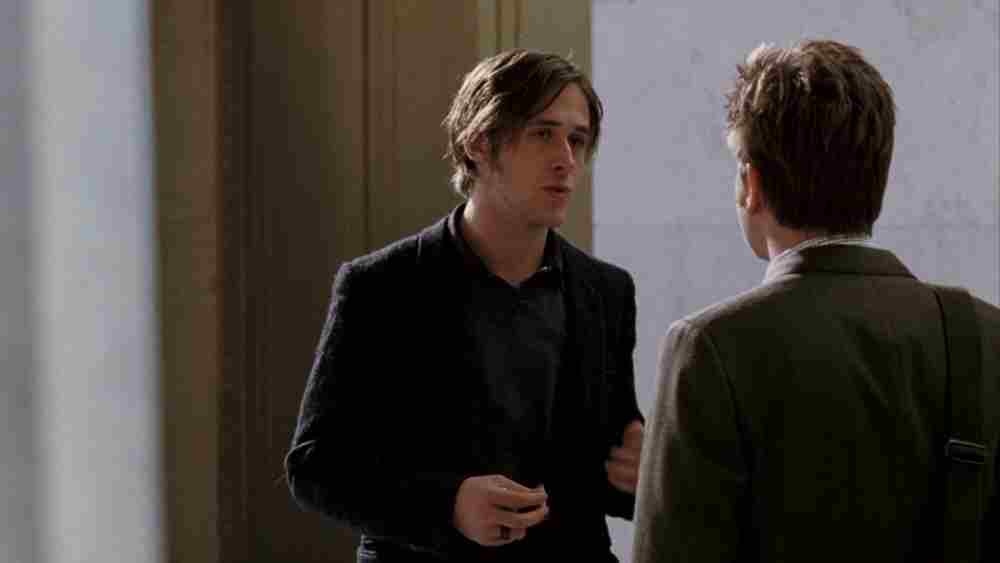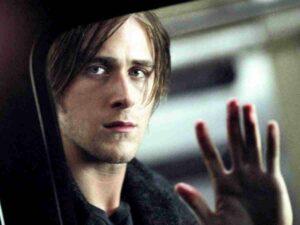Mark Foster’s Stay (2005) is a mid-budget psychological thriller, a type of film that began disappearing around that time due to the rise of the modern blockbuster and international markets. Stay is a perfect example of the studios’ decisions to abandon such films in pursuit of franchise productions, as it flopped at the box office despite having some great names working on the film. It was written by David Benioff, who later became famous for his work on Game of Thrones, and stars Ewan McGregor, Naomi Watts, and Ryan Gosling. The story follows a psychiatrist trying to save his patient — a troubled art student — from his suicidal tendencies.
Stay is truly a hidden gem, a film that explores themes of mental health, reality, and the afterlife. It was misunderstood during its release, grossing only about eight and a half million dollars worldwide and receiving mostly negative reviews from critics. This is probably due to the fact that it requires viewers to think about what they just watched; it doesn’t offer them the answers on a silver platter. These types of films are often unpopular with audiences because they tend to alienate a large portion of viewers who just want to have fun and not be challenged by the film. Over the years, however, it managed to rightly restore its reputation, taking viewers on a wild ride of excitement and confusion and enticing them to watch the film multiple times. In this article, we will try to clarify the story and explain what it all means.
WATCH: 10 Greatest Suspense Films of All Time
A Dreamlike World

The film opens with a car crash on the Brooklyn Bridge, featuring Henry Letham (Ryan Gosling) sitting next to the destroyed car. Subsequently, we are introduced to psychiatrist Sam Foster (Ewan McGregor) and his girlfriend, Lila (Naomi Watts), at his workplace. Due to his colleague Beth Levy (Janeane Garofalo) taking leave, Sam takes on a new patient — Henry, a troubled art major college student who torched his car with no recollection of the event. In their second meeting, Henry claims to hear voices and announces that he will commit suicide in three days.
Sam, determined to help Henry, meets him on campus, where Henry reveals that his parents are dead. Later, while Sam is playing chess with his blind mentor, Dr. Leon Patterson (Bob Hoskins), Henry arrives and is shocked to see Leon, claiming that it’s his father. Sam then visits Beth, hoping that she can help him with Henry. She urges him to speak to Henry’s mother, who was thought to be dead.
Sam finds Henry’s mother in a bare house, and in a very strange interaction where she mistakes Sam for her son, she starts bleeding, leading to her dog biting Sam. Once Sam reports the incident to the police, the sheriff tells him that Henry’s mother is dead and that he attended her funeral. Sam is now at a loss as to what is real and what isn’t, having witnessed the same scene and dialogue repeated several times.
Now, with Henry claiming to have killed his parents, Sam sets out to find Athena, a waitress Henry had fallen in love with. When he locates her and she agrees to take him to Henry, Sam descends a flight of stairs only to arrive back at the stage where he had found Athena. With time running out, Sam heads to the Brooklyn Bridge, where Henry will commit suicide. There, he finds out that Leon can see, having previously been cured by Henry with a touch of his hand.
Waking Up to the Truth
Sam finds Henry on the bridge, where he tells him that he doesn’t know what is real anymore. Henry shoots himself with his gun, and then we are transported to the accident of the first scene. Athena and Henry’s parents, who were with him in the car, are now dead, and Henry is badly wounded. In this scene, every character in the story is reintroduced as strangers, attempting to save the severely injured Henry. However, their efforts prove unsuccessful, as Henry appears to die.
Now, most viewers will probably be left wondering what just happened. To understand that, we must separate the scenes of the film into two categories: the real ones and the imagined ones. The real scenes are essentially the first and last ones that show the car accident. Henry is driving the car on Brooklyn Bridge with his girlfriend, mom, and dad in the car. Then the tire bursts, causing an accident where everyone but Henry is killed. In his last moments, the rest of the characters rush to his aid in an attempt to help him survive, including doctor Sam and nurse Lila. These characters have never met before, something that becomes evident in the last scene.
Consequently, the rest of the story is a hallucination or a dream that Henry’s oxygen-deprived brain formulates in his last moments. It uses characters from the present surroundings and fills in the rest, akin to what our subconscious does during a dream. That explains the surrealism of the film, reminding us a lot of David Lynch’s Mulholland Dr. (2001).
Just like Stay, Mulholland Dr. uses impossible visuals, nonlinear storylines, and accentuated camerawork and sound to achieve its surreal, dream-like aesthetic. The two films are also thematically similar, centering around guilt and its effects on people. Just as Betty (Naomi Watts) feels tremendous guilt for the death of her lover, resulting in her mental breakdown and ultimate suicide, Henry too blames himself for the death of his girlfriend and parents—his guilt and mental decline manifesting in the dream story. Now we can start to piece together all the baffling things happening during the imagined scenes and the intent behind them.
Whispers of the Living
Some of the more curious occurrences in the imagined scenes included pieces of dialogue from different characters, which seemed inexplicable at first. We now know that these characters are the people present at the accident on the Brooklyn Bridge, commenting on the situation. Henry’s brain tries to integrate them into the story, resulting in some absurd events. A baby crying, the voices that Henry hears, a woman screaming, “He’s just a kid,” an elderly couple stating, “He’s not going to make it,” Beth saying, “I didn’t touch him. I know you are not supposed to touch him,” Sam’s recorded message in his own voice, and a kid asking his mom if that man is gonna die. This is all dialogue and sounds from the scene of the accident, while Henry is still alive and somewhat conscious.
Another thing that also tells us that we are in a dream is the rapid and impossible change in physical spaces. Lia walking out of a train immediately into her apartment; Henry walking from the university into an aquarium; Sam inside a taxi moving from the city to the countryside in an instant; and Sam following Athena down a flight of stairs, only to arrive back to where he started from. These are all examples of the irrationality of the imagined scenes, which are consistent with the experience of dream sequences.
Visual Absurdity
Visual clues are also present in the imagined scenes, alluding to the departure from reality and representing Henry’s current situation on the bridge. When Sam meets Henry at the university, groups of twins and triplets storm out of the lecture hall, another sign that this story is created by Henry’s subconscious, which is unable to create a multitude of different characters, thus leaving us with twins and triplets. We also see Henry’s mother bleed when Sam visits her, representing her injuries and subsequent death in the accident. The same also happens to Henry near the end of the film. The dream state is also seen in Henry’s artwork, which is present behind Sam’s bed when he is introduced, and also when Lila realizes that all of her artwork is Henry’s.
Frankly speaking, the visual clues are so many that it would be impossible to mention them all, a testament to the attention to detail that went into making Stay.
Lastly, the editing also serves the film’s purpose by incorporating weird and unorthodox cuts, even rearranging the positions of characters to disorient and evoke a sense of being lost and uneasy. Stay manages to blend all these elements together in a carefully designed way to deliver an experience that is both mentally challenging and extremely engaging and entertaining, making it a must-watch.

